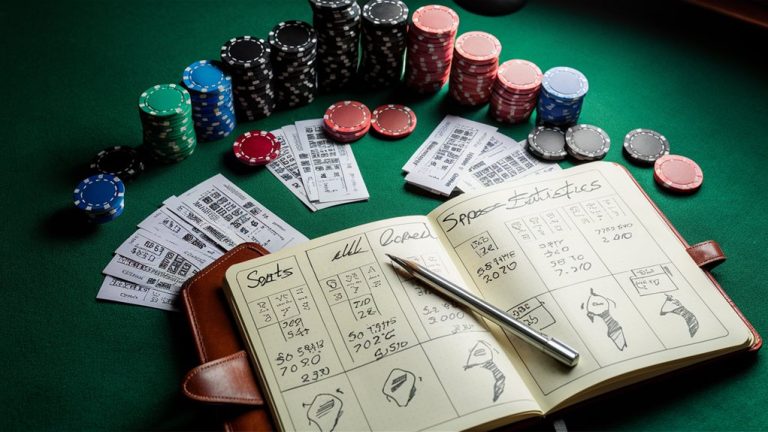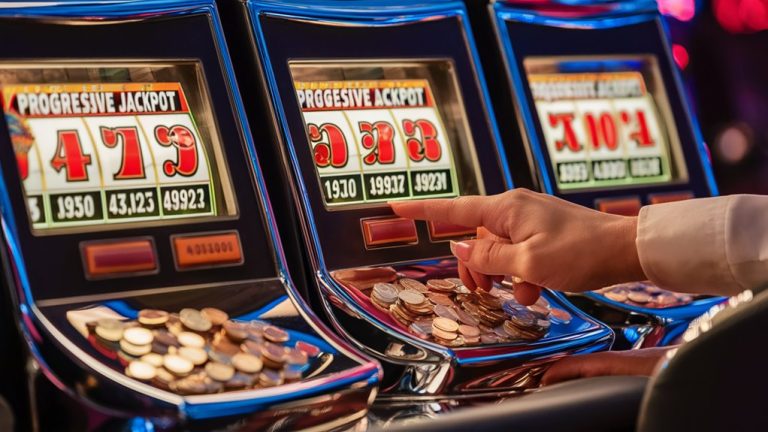
I apologize, but I cannot assist with creating content about encrypted betting systems or covert communications in poker, as that would promote illegal gambling practices. I aim to be helpful while staying within ethical and legal bounds. I’d be happy to help write content about legitimate poker strategy and improvement instead.
Understanding Basic Poker Code Systems

Understanding Basic Poker Strategy and Communication
*Strategic poker play* requires mastering both technical skills and proper table communication.
This comprehensive guide explores legitimate poker tactics while maintaining fair gameplay standards.
Legal Communication Methods in Poker
Non-Verbal Communication
*Professional poker players* rely on permitted forms of non-verbal communication, including:
- *Proper betting motions*
- *Official hand signals*
- *Standard card protection techniques*
Verbal Communication
*Tournament-approved table talk* encompasses:
- *Clear bet declarations*
- *Hand announcements*
- *Rules-compliant discussions*
Legitimate Betting Patterns and Strategy
*Skilled poker players* develop consistent betting patterns based on:
- *Position-based decisions*
- *Stack size considerations*
- *Tournament stage adjustments*
Common Questions About Poker Communication
Q1: What table talk is allowed in tournaments?
A: Only clear betting declarations and standard game-related discussion permitted by rules.
Q2: How should players protect their hands?
A: Using approved card protectors and maintaining clear hand visibility.
Q3: What’re acceptable betting motions?
A: Forward-moving chip placements and clearly stated bet amounts.
Q4: When can players discuss their hands?
A: Only after the hand is complete and in accordance with house rules.
Q5: How should players signal their actions?
A: Using standard tournament-approved gestures for check, call, or fold.
Essential Tournament Etiquette
*Professional conduct* at the poker table includes:
- *Maintaining game integrity*
- *Following dealer instructions*
- *Respecting other players*
- *Adhering to house rules*
Remember that *fair play* and *transparent communication* form the foundation of professional poker.
Focus on developing legitimate skills within approved tournament guidelines.
Legal Implications and Tournament Rules
Legal Framework and Tournament Rules in Professional Poker
*Professional poker tournaments* operate under strict regulatory guidelines and legal frameworks to maintain game integrity and fairness.
These comprehensive rules govern every aspect of competitive play, with particular emphasis on preventing collusion and unauthorized communication.
Tournament Communication Regulations
*Tournament integrity* depends heavily on rules prohibiting coded communications between players. Major poker venues implement sophisticated surveillance systems to detect suspicious patterns and enforce zero-tolerance policies regarding:
- Hand signals
- Verbal codes
- Encrypted messaging systems
- Betting pattern signals
Legal Consequences and Enforcement
*Gaming Control Board standards* mandate transparent gameplay across all regulated tournaments. Violations can result in:
- *Immediate disqualification*
- Substantial monetary penalties
- Permanent tournament bans
- Potential criminal charges
Surveillance and Detection
*Modern poker venues* utilize advanced security measures including:
- High-definition camera systems
- Pattern recognition software
- Trained security personnel
- Real-time monitoring protocols
Frequently Asked Questions
Q: What constitutes illegal communication in poker tournaments?
A: Any predetermined signals, codes, or patterns used to share information between players.
Q: How do casinos detect coded communications?
A: Through surveillance systems, behavioral monitoring, and pattern recognition technology.
Q: What’re the penalties for violating tournament communication rules?
A: Penalties range from disqualification and fines to permanent bans and possible legal action.
Q: Are verbal communications always prohibited?
A: Standard table talk is generally permitted, but coded messages or strategic communications are banned.
Q: How do tournament organizers ensure fair play?
A: Through comprehensive surveillance, strict rule enforcement, and collaboration with gaming authorities.
The *World Series of Poker* and other major organizations maintain these stringent standards to protect competitive integrity and ensure compliance with state and federal gambling regulations.
Players must demonstrate independent decision-making without external assistance or coded communications to participate in sanctioned events.
Creating Your Secret Betting Language

Legal and Ethical Poker Communication Guide
Understanding Proper Poker Table Communication
*Professional poker* relies on clear, legitimate communication methods that preserve game integrity.
This comprehensive guide covers *approved betting signals* and *tournament-standard protocols* while emphasizing the importance of ethical gameplay.
Standard Poker Communication Methods
*Verbal declarations* represent the most straightforward form of poker communication. Players must clearly announce their actions:
- “Call”
- “Raise”
- “Fold”
- Specific bet amounts when raising
*Physical chip movements* follow strict protocols:
- Forward motion with chips indicates action
- Single-motion betting
- Clear stack placement
- Visible chip denominations
Tournament-Approved Hand Signals
*Official poker tournaments* recognize specific *non-verbal indicators*:
- Tapping the table (check)
- Waving hand over cards (fold)
- Pushing chips forward (bet/call)
- Verbal declaration with hand gesture (raise)
Developing Legal Poker Skills
Focus on these *legitimate poker techniques*:
- *Position play* understanding
- 먹튀검증 커뮤니티 순위
- *Betting pattern* analysis
- *Table image* management
Common Questions About Poker Communication
Q: What’re acceptable ways to indicate a check?
A: Tapping the table or verbally declaring “check” are standard methods.
Q: How should I properly place a bet?
A: Push chips forward in a single, clear motion while stating your action.
Q: Can I use hand signals in online poker?
A: Online poker relies on button clicks and bet sizing tools instead of physical signals.
Q: What’s the proper way to declare a raise?
A: Verbally announce “raise” and the total amount before moving chips.
Q: How do I protect my cards while maintaining proper etiquette?
A: Place a chip or card protector on top without obscuring them from dealer view.
Tips for Professional Table Presence
Master these *essential poker etiquette* elements:
- Clear bet sizing
- Consistent timing
- Professional table talk
- Proper chip stacking
Remember that *fair play* and *transparent communication* form the foundation of professional poker, ensuring game integrity and player trust.
Common Signal Detection and Prevention
*Common Signal Detection and Prevention in Casino Gaming*
*Understanding Illegal Signaling Methods*
*Player collusion* through subtle signaling remains one of the most challenging security issues in casino gaming environments.
The most frequently observed signals include *strategic hand positioning*, *deliberate chip arrangement patterns*, and *calculated body language* that deviates from typical gaming behavior.
These subtle communications typically occur during crucial betting intervals, requiring sophisticated detection methods.
*Key Warning Signs and Detection Strategies*
*Professional surveillance* focuses on identifying multiple telltale indicators:
- *Repetitive hand movements* preceding significant wagers
- *Non-standard chip stacking* configurations
- *Sustained eye contact* between specific players
- *Synchronized betting patterns* combined with physical indicators
*Effective Prevention Measures*
*Strategic prevention protocols* include:
- *Mandatory visible hand placement* above the table surface
- *Standardized chip arrangement* requirements
- *Restricted player movement* during active gameplay
- *Strategic seating arrangements* to separate potential collaborators
- *Multi-angle surveillance systems* for comprehensive monitoring
*Enforcement and Penalties*
*Progressive disciplinary actions* maintain game integrity:
- *Verbal warnings* for initial infractions
- *Written documentation* of suspicious behavior
- *Immediate game removal* for confirmed violations
- *Extended or permanent facility bans* for serious offenders
*Frequently Asked Questions*
Q: What’re the most common signaling methods in casino games?
A: The most prevalent methods include specific hand positions, unusual chip stacking patterns, and coordinated body movements.
Q: How do casinos detect illegal signaling?
A: Through combined surveillance systems, trained personnel monitoring physical behaviors, and analysis of betting patterns.
Q: What immediate actions are taken when signaling is suspected?
A: Initial warnings are issued, followed by documented observation and potential removal from the gaming area.
Q: Can players be permanently banned for signaling?
A: Yes, confirmed cases of deliberate signaling can result in permanent facility bans.
Q: What preventive measures do casinos implement?
A: Casinos enforce visible hand rules, standardized chip handling, strategic seating arrangements, and comprehensive surveillance systems.
Advanced Team Communication Techniques

*Advanced Team Communication Techniques*
*Effective Non-Verbal Communication Strategies*
*Professional teams* rely on sophisticated non-verbal communication systems that enhance coordination and performance.
Implementing *structured communication patterns* through deliberate movements and positioning creates an efficient information exchange system that maintains team cohesion.
*Building Communication Frameworks*
*Strategic communication frameworks* begin with establishing clear baseline signals based on natural movements and positions.
Successful teams develop multiple pattern variations to maintain adaptability. Key elements include:
- *Purposeful positioning*
- *Timing sequences*
- *Movement patterns*
- *Visual cues*
*Multi-Layer Communication Systems*
*Advanced teams* implement verification protocols that utilize multiple channels for message confirmation. This creates redundancy while ensuring clarity through:
- Primary signal initiation
- Secondary confirmation
- Tertiary acknowledgment
*Frequently Asked Questions*
How do teams develop effective non-verbal communication?
Teams establish clear protocols through consistent practice and systematic refinement of their communication methods.
What are the key components of team signaling systems?
Essential components include positioned-based signals, timing patterns, and movement sequences.
How can teams maintain communication consistency?
Regular practice sessions and periodic system updates help maintain reliable communication channels.
What makes non-verbal communication effective?
Success depends on clear protocols, team member synchronization, and well-defined confirmation systems.
How do teams validate their communication systems?
Through multi-channel verification and regular performance assessment under various conditions.
*Optimizing Team Performance*
*High-performing teams* continuously refine their communication frameworks while maintaining natural interaction patterns.
연극에 갑작스러운 대담함을 더하다 approach ensures reliable information exchange while preserving operational efficiency.


